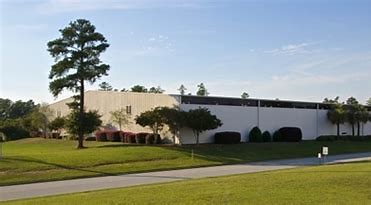Introduction
In the digital era, technology continues to shape our lives in profound ways, driving advancements and transforming various aspects of society. The concept of a “1001 technology drive” refers to the rapid pace at which innovations are being introduced, leading to a cascade of changes across industries, communication, healthcare, and more. This article delves into the concept of a 1oo1 technology drive, explores its impact, highlights challenges and concerns, and offers a glimpse into the future possibilities it holds.
The Concept of Technology Drive
A technology drive signifies the dynamic process of continuous improvement and innovation within the realm of technology. It represents the collective efforts of individuals, organizations, and societies to push boundaries and harness the potential of emerging technologies. It involves the relentless pursuit of new ideas, the development of groundbreaking solutions, and the integration of technological advancements into everyday life.
Advancements in Technology
Impact on Communication
One of the most significant outcomes of the technology drive is its impact on communication. Traditional barriers of time and distance have been shattered, allowing for instant global connectivity. Platforms and applications enable people to connect, share ideas, and collaborate across borders. Social media has become an integral part of our lives, revolutionizing how we interact and disseminate information.
Transformation of Industries
Industries of all types have experienced a profound transformation due to the 1001 technology drive. Automation, artificial intelligence (AI), and machine learning have revolutionized production processes, streamlining operations, and enhancing efficiency. The rise of e-commerce has disrupted traditional retail models, enabling seamless online shopping experiences. Cloud computing has revolutionized data storage and accessibility, empowering businesses with scalable solutions.
Enhancements in Healthcare
The 1001 technology drive has also made remarkable strides in the field of healthcare. Medical breakthroughs, such as precision medicine and gene therapy, have the potential to revolutionize treatments and improve patient outcomes. Telemedicine and remote monitoring have made healthcare services more accessible, particularly in remote areas. Big data analytics and AI are transforming healthcare research, enabling personalized treatments and early disease detection.
Challenges and Concerns
As technology continues to advance at an unprecedented pace, it also poses several challenges and concerns that need to be addressed.
Privacy and Security
With increased reliance on technology, the need for robust privacy and security measures becomes paramount. The vast amounts of data generated and stored raise concerns about data breaches and unauthorized access. Striking a balance between convenience and safeguarding personal information becomes crucial.
Ethical Considerations
The technology drive raises ethical considerations, particularly in areas such as AI and automation. Questions arise about the impact on employment, the potential for bias in algorithms, and the responsible use of emerging technologies. Transparent and ethical practices should guide the development and deployment of technology to ensure its benefits are realized without infringing upon societal values.
Job Displacement
While the 1oo1 technology drive brings forth incredible advancements, it also disrupts traditional job markets. Automation and AI have the potential to replace certain job roles, leading to concerns about unemployment and re-skilling the workforce. Adapting to these changes and finding new avenues for employment become crucial challenges to address.
The Future of Technology Drive
Looking ahead, the future of the technology drive holds immense possibilities. Advancements in fields like nanotechnology, renewable energy, and quantum computing offer promising prospects for innovation. The integration of technologies like Internet of Things (IoT) and 5G will lead to further interconnectedness and smart solutions. Collaborative efforts among individuals, organizations, and governments will drive the technology of tomorrow.
Conclusion
The concept of a technology drive encompasses the continuous pursuit of innovation, pushing the boundaries of what is possible. Its impact on communication, industries, and healthcare is evident, shaping the way we live and interact. However, challenges such as privacy, ethics, and job displacement must be addressed to ensure technology benefits all of humanity. Looking forward, the future of the technology drive holds exciting prospects for further advancements and transformative changes.
FAQs
Q. How has technology driven advancements in communication?
Technology has revolutionized communication by breaking down barriers of time and distance. Platforms like social media enable instant global connectivity, fostering collaboration and idea sharing across borders.
Q. What industries have been transformed by the technology drive?
Various industries, including manufacturing, retail, and finance, have experienced significant transformation through automation, AI, and cloud computing. These technologies have streamlined operations and enhanced efficiency.
Q. What are the concerns surrounding the technology drive?
Some concerns include privacy and security, ethical considerations in AI and automation, and job displacement due to technological advancements.
Q. What does the future hold for the technology drive?
The future of the technology drive is promising, with potential advancements in fields like nanotechnology, renewable energy, and quantum computing. Interconnectedness through IoT and 5G will pave the way for smart solutions.
Q. How can we address the challenges posed by the technology drive?
Addressing challenges requires robust privacy and security measures, ethical practices, and efforts to re-skill the workforce for new job opportunities in the evolving technological lands’








